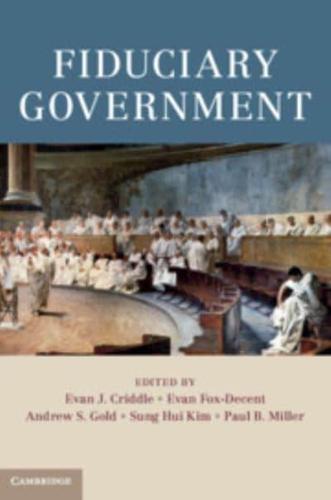Publisher's Synopsis
The idea that the state is a fiduciary to its citizens has a long pedigree - ultimately reaching back to the ancient Greeks, and including Hobbes and Locke among its proponents. Public fiduciary theory is now experiencing a resurgence, with applications that range from international law, to insider trading by members of Congress, to election law and gerrymandering. This book is the first of its kind: a collection of chapters by leading writers on public fiduciary subject areas. The authors develop new accounts of how fiduciary principles apply to representation; to officials and judges; to problems of legitimacy and political obligation; to positive rights; to the state itself; and to the history of ideas. The resulting volume should be of great interest to political theorists and public law scholars, to private fiduciary law scholars, and to students seeking an introduction to this new and increasingly relevant area of study.










